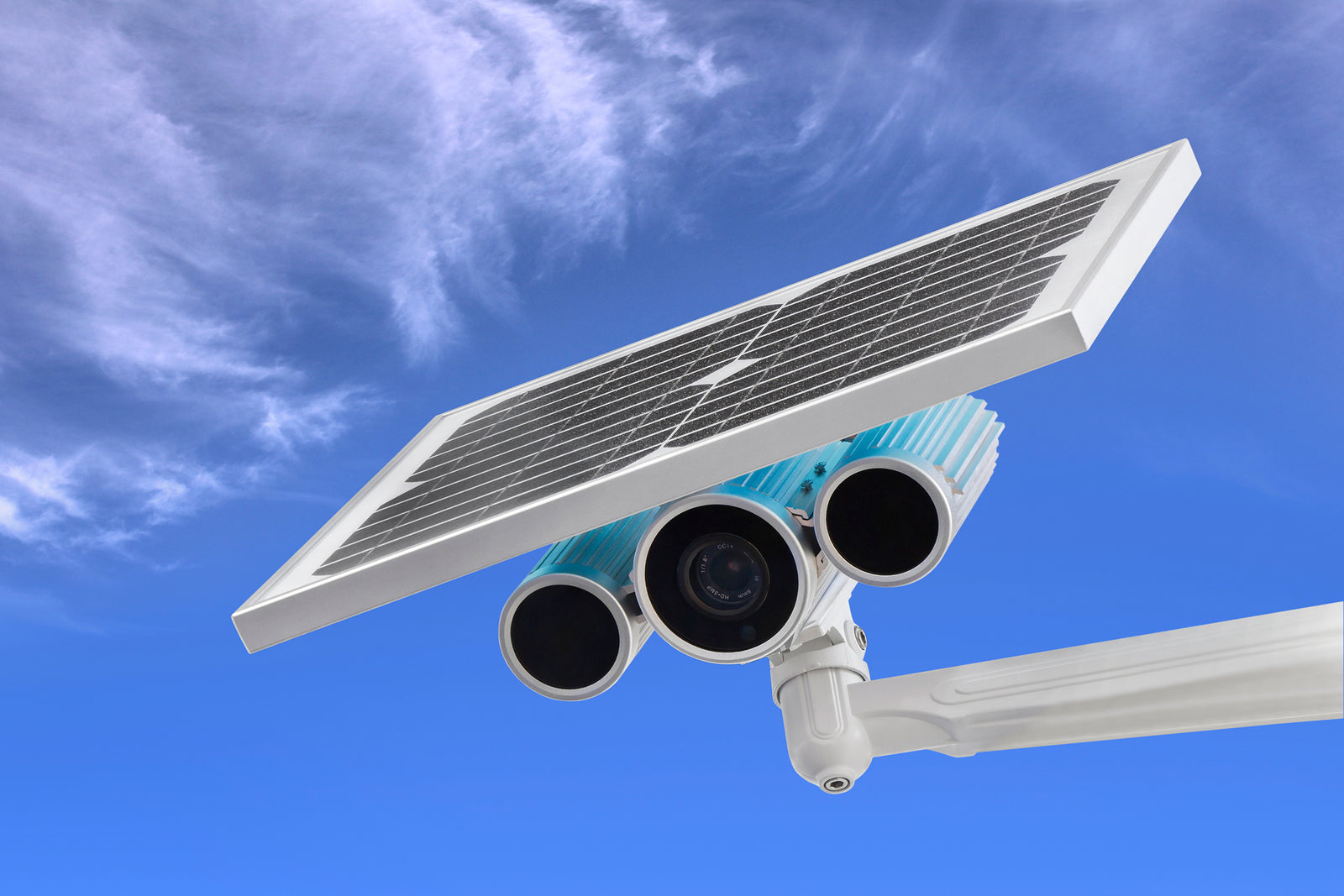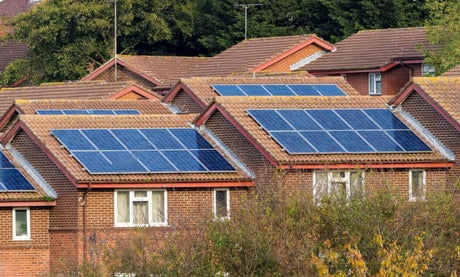Solar panels have come a long way over the past few decades, especially in efficiency levels. Today’s solar panels are advanced, streamlined, durable, and highly efficient. Also, rest assured, Renogy solar panels are some of the most efficient available on the marketplace today, ensuring you’ll have a cost effective energy solution.
What is efficiency?
Solar panel efficiency refers to a solar panel’s ability to convert sunlight into usable electricity. If comparing two panels with the same amount of sunlight shining for the same duration of the time, the more efficient solar panel will collect more energy than the less efficient panel.
How do solar panels work?
Photovoltaic solar panels are made up of many solar cells made of silicon. When sunlight hits the panels, they create an electric current. Panels have both a positive and a negative layer, which creates an electric field. The current collected by solar panels then feeds into a charge controller, batteries, and inverter.
How efficient are solar panels?
The greatest variation in solar panels depends on whether you’re using monocrystalline and polycrystalline panels. Polycrystalline panels, which are light blue in color, are less energy and space efficient than monocrystalline panels, but they are also cheaper. Monocrystalline panels, which are darker in color, are more energy efficient.
What is the most efficient solar panel?
Solar panels today tend to hover in the 15 and 25% efficiency levels. For example, Renogy’s 160w 12v panels have 21% cell efficiency. This means that 21% of the sunlight absorbed by panels is converted into electricity.
Is solar panel efficiency improving?
Yes, solar panels continue to improve in efficiency. In 1954, the first useful silicon solar panel produced by Bell Labs was about six percent efficient. Technology has evolved at a rapid pace and continues to improve. In fact, researchers have managed to achieve almost 50 percent efficiency in laboratory tests. Currently they aren’t cost effective to produce, but that day may be in the near future.
What affects solar panel efficiency?
There are several factors that determine how efficient a solar panel is. There are several items that solar cell researchers and manufacturers consider when designing and producing efficient solar panels:
- The type of material greatly impacts how light converts to electricity
- Wiring and busing on a solar panel that actually capture and transfer electricity impacts efficiency
- If light is reflected away from a solar panel, it’s efficiency may be lowered.
- Weather: Cloudy weather will also have a negative impact on solar panel output and efficiency.
- Shading: Shading from nearby trees or from roof features will also bring the output of the solar panels down by about half.
- Solar panel age: Solar panels gradually decrease in efficiency levels when they age.

How many solar panels do I need?
It’s incredibly important to properly size your solar installation. To determine what size system will best fit your needs, we recommend using the Renogy solar panel calculator. The solar sizing calculator allows you to input information about your lifestyle and appliances used to help you decide on your solar panel requirements. The solar panel calculator will then be able to tell you the minimum and recommended system size, as well as the recommended battery output.
How many solar panels does it take to charge a 100ah battery?
Again we use the same calculation dividing power in watts by the voltage in volts to find amps.
Charging your battery at 12 volts and 20 amps will take five hours to charge a 100 amp hour battery. By multiplying 20 amps by 12 volts, 240 watts is how big of a panel you would need, so we’d recommend using a 300w solar panel or 3 100 watt solar panel
What can you run with a 300 watt solar panel?
A 300 watt monocrystalline panel that receives 8 hours of sunlight per day will produce almost 2.5 kilowatt-hours per day. If we multiply this by 365 days per year, we get a solar output of about 900 kilowatt-hours annually. In short, each panel will provide 900 kilowatt-hours each year.
Considering all of the different scenarios, there is still a long list of appliances and devices that can run effectively with 300-watt solar panels, including laptops, LED lights, stereos, and TV’s.
To get an accurate calculation of what you can and cannot power with a single 300 watt solar panel, you’ll need to compare the output per day or month (so 2.5 kWh/day for the solar panel) with the needs of an appliance (3.8kWh/day for a refrigerator). In this example, a 300 watt solar panel would not be enough to power that refrigerator.
What can you run with a 500 watt solar panel?
Let’s assume that each panel gets around 8 hours of sunlight per day on your rooftop. A 500 watt panel receiving 8 hours of sunlight per day will produce about 4 kilowatt-hours per day. If we multiply this by 365 days per year, we get a solar output of about 1460 kilowatt-hours annually. In short, each panel will provide 1460 kilowatt-hours each year.
Buying a combination of these larger panels will help you meet the need of more energy-hungry appliances, such as refrigerators, stoves, hot water heaters, and dryers.
Conclusion
There’s a common misconception that solar panels are wildly inefficient. However, today’s typical silicon solar panels operate at more than 20 percent efficiency and continue to improve over time. If you’re interested in efficient, advanced, and clean energy, Renogy solar panels are a great place to look.









